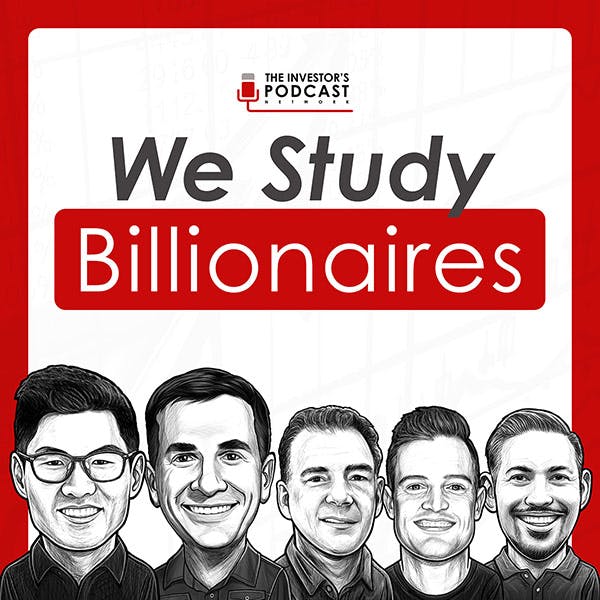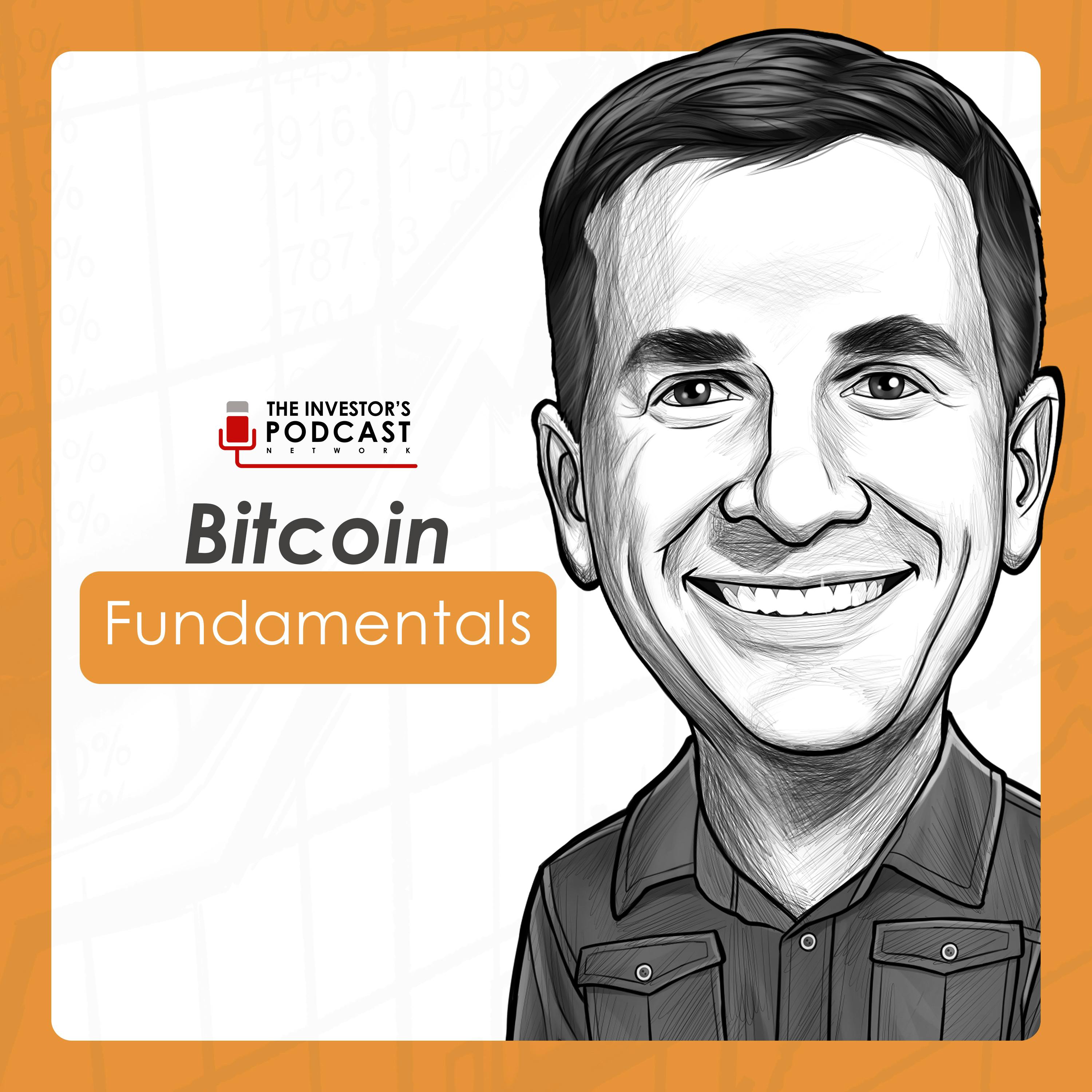
July 19, 2024 • 1hr 6min
TIP645: The King of Luxury: Bernard Arnault & LVMH w/ Christian Billinger
We Study Billionaires - The Investor’s Podcast Network

Key Takeaways
- Bernard Arnault has built LVMH into a luxury conglomerate worth over €350 billion, making it one of the largest companies in Europe
- Arnault combines traits of an engineer and artist, with short-term risk management and long-term optimism
- LVMH owns 75 luxury brands across categories like fashion, leather goods, wines & spirits, watches & jewelry
- The company has averaged 10% organic growth over the past decade, outperforming the broader luxury market
- Brand equity and desirability are crucial factors for LVMH's continued success
- China accounts for about 1/3 of luxury spending globally and has driven 2/3 of industry growth over the past two decades
- LVMH trades at around 20x earnings, which seems reasonable given its quality and growth prospects
- Key risks include succession planning as Arnault is 75 years old, and maintaining brand equity
Introduction
In this episode, host Clay Finck interviews Christian Billinger about Bernard Arnault and the luxury conglomerate LVMH. They discuss Arnault's business acumen, LVMH's strategy and performance, the luxury industry landscape, and investment considerations for the company.
Christian Billinger is the chairman of Billinger Förvaltnings AB, which invests in publicly listed equities. He has been invested in LVMH for 6-7 years and provides insights as both an investor and industry observer.
Topics Discussed
Bernard Arnault's Unique Traits as a Business Leader (2:08)
- Unusual combination of engineer and artist - brings precision to business-building but also involved in creative side
- Short-term paranoia, long-term optimism - manages risks carefully but exposed to long-term growth trends
- Combines obsessive attention to detail with granting autonomy to brand managers
- Has been in the right place at right time for deals, especially early in career
Christian notes that Arnault is more private than Warren Buffett, making it harder to analyze his traits. But his track record in building LVMH over 40 years demonstrates his capabilities.
Comparing Arnault/LVMH to Buffett/Berkshire (6:29)
- Both are conglomerates redeploying cash into new opportunities
- LVMH more focused on luxury vertical vs Berkshire's diversification
- Arnault has dynastic ambitions vs Buffett's philanthropic plans
- LVMH "almost never sells" businesses vs Berkshire's occasional sales
- Arnault more private, less accessible than Buffett's public persona
"In many ways, they're strikingly similar. In some ways, they are strikingly different," says Christian about Arnault and Buffett.
LVMH Business Overview (12:21)
- Holding company owning ~75 luxury brands across categories:
- Fashion & leather goods (largest segment)
- Wines & spirits
- Watches & jewelry
- Perfumes & cosmetics
- Retail
- Louis Vuitton and Dior account for ~2/3 of earnings
Christian explains: "You should think of LVMH at the group level, and that's what you're buying. If you invest in LVMH, the listed company you are buying into, the holding company, where capital allocation takes place and where Arnault exercises influence through very direct engagement with the people who run these businesses."
Arnault's Acquisition Strategy (23:49)
- Early on, bought distressed assets at bargain prices
- Now focuses more on quality brands that are undermanaged
- Provides financial resources and expertise to accelerate growth
- Example: Grew Bulgari's EBIT from €60M to €500M in 10 years post-acquisition
Christian notes Arnault has evolved his approach over time, similar to Buffett: "As the whole business has grown and as the stakes have become higher, I think he's becoming increasingly focused on quality and robustness and building something durable, building something multi-generational."
The Role of China in LVMH's Business (26:25)
- Chinese consumers account for ~1/3 of global luxury spending
- China has driven ~2/3 of industry growth over past two decades
- Growth has slowed recently but remains an important market
- LVMH still growing strongly overall despite China slowdown
Christian sees this as a sign of strength: "You could argue, on the one hand, it's a real issue that China is not growing at the rate it once was. But you could argue, on the other hand, that it's a real sign of strength, that at the group level they can carry on growing at a very healthy rate, despite the fact that China isn't growing at the rate it once was."
LVMH's Adherence to the Luxury Strategy (30:48)
- Varies by brand within LVMH's portfolio
- Some brands like Loro Piana follow luxury playbook closely
- Flagship Louis Vuitton brand may be breaking some "rules":
- Easier accessibility of products
- Use of celebrities in advertising
- Olympic sponsorship raising questions about ubiquity
Christian notes it's too early to say if this matters: "Does it matter? I don't know, and it's too early to say. I think for some of the brands it's easier...If you look at Chanel or Hermès, I find it more difficult to assess the future of a brand like LV especially."
Stock Performance of Luxury Companies (35:33)
- Hermès: 21% CAGR over past 20 years
- LVMH: 16% CAGR over past 20 years
- Kering and Burberry have underperformed
- Divergence reflects quality of businesses and brands
- Family ownership enables long-term focus on brand desirability
Christian explains the outperformance: "I think ultimately that's what it comes down to. Obviously, a lot of things go into that, but I think in some ways, it's a very fair reflection of the divergence in performance, and the fact that clearly LV, Dior and Hermès have been much more true to this luxury business model we discussed last week."
Key Metrics for Assessing LVMH (38:02)
- Organic growth rate
- Margins and underlying EPS growth
- Culture and willingness to invest for long-term
- Brand desirability
- Adherence to luxury business model principles
Christian emphasizes the importance of qualitative factors: "Some of that is difficult to put numbers on, but ultimately that should be reflected in the higher organic growth rates and the margins and the returns and all of those metrics."
Succession Planning (39:43)
- Arnault is 75 years old
- Expectation that one or more of his children will take over
- Possibility of an outsider (likely from within LVMH) as CEO
- May see changes in capital allocation and cash returns post-succession
Christian notes the uncertainty: "I don't think anyone knows. I don't even know if he knows at this point...I think he's very pragmatic. Right. And ultimately he cares about preserving the business the empire has built."
Capital Allocation (41:55)
- High reinvestment rate historically
- Deployed €20B incremental capital at 20% returns between financial crisis and pandemic
- Mix of organic capex (especially real estate/retail) and acquisitions
- Pays dividend but share repurchases insignificant
Christian sees this as impressive: "I think the 20% number is very impressive when you look at the overall amount of capex being redeployed."
Valuation and Risks (46:56)
- Trading at ~20x earnings, 5% free cash flow yield
- Valuation seems reasonable given quality and growth prospects
- Key risks:
- Maintaining brand equity, especially for Louis Vuitton
- Succession planning and potential changes to business profile
- Cyclicality and operating leverage in luxury industry
On valuation, Christian states: "To me that seems like a perfectly reasonable or even somewhat attractive valuation for a business of this quality."
Conclusion
LVMH stands out as a high-quality luxury conglomerate with an impressive track record of growth and returns. Under Bernard Arnault's leadership, it has built a portfolio of strong brands and demonstrated an ability to improve acquired businesses. While risks exist around succession and maintaining brand equity, the company's diversification and financial strength provide some cushion.
For investors, LVMH offers broad exposure to the luxury goods industry at a reasonable valuation. Its mix of established brands and growth potential in emerging markets could drive continued strong performance. However, the cyclical nature of luxury and potential changes post-Arnault warrant monitoring.
Overall, LVMH exemplifies many of the attractive qualities of luxury businesses - pricing power, brand strength, and exposure to growing global wealth. Its ability to continue executing on these advantages will be key to future success.









